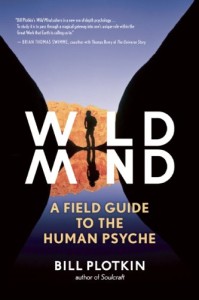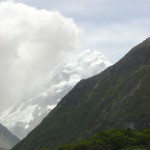
What does it take to crack the shell of prolonged inactivity when it comes to blogging? The mind has been at work for the last two years reading, changing, looking but somehow the importance of tapping at the keyboard and exposing my soul has been missing. Time has been taken up with other things.
A couple of months ago an invitation arrived to review Bill Plotkin’s new book Wild Mind: A Field Guide to the Human Psyche. The publishers had seen that I’d made mention of SoulCraft in Sacred Sorrow: Powerlessness 2. It was enough to break the chains of slavery to the routine that had drowned the inspiration to blog.
That and an innovative approach to publicising the book…… http://bit.ly/wildmindtrailer and an interview at https://www.youtube.com/watch?v=kqT2AQ3Yvfs with this man who has thirty years experience in the human potential arena focusing on his clients’ relationship to nature. This symbiotic relationship provides a path to the fullest expression of their humanity.
Field Guides generally assist readers in identifying the flora and fauna; provide maps; and describe points of interest relevant to a particular region. Wild Mind is no different – it allows us to recognize the aspects of the psyche that will direct our passage through life to create a naturally enhancing & sustaining personal and global culture.
What Plotkin has done is create a map for seekers who wish to experience a life that embodies the fullest expression of our humanity. When he embeds a personal story from someone who has used the map the terrain of his idea becomes more visible.
The major landmarks of this map use the Medicine Wheel and the directions (North, South, East & West) as a template for an engaging exploration of the facets required to fully express ourselves and to carry that into our communities and nations to bring about transformation that spirals out into global consciousness.
The Facets are:
- North: Nurturing Generative Adult – compassionate and competent
- South: Wild Indigenous One – sensuous, emotive, instinctual, playful
- East: Innocent/Sage – pure, simple, clear, lighthearted, wise, perceptive
- West: Muse/Inner Beloved – adventurous, visionary, symbolic, mythic, poetic
One of the directions will be our preferred way of being in the world. Its polar opposite points towards our weakness. Our weak facets may be the horizon from which our symptoms, our addictions, and our dysfunction arise. Those weaknesses are the sub-personalities formed in early childhood by an immature ego creating a sense of safety for allowing us to co-exist in a world that appears to be maleficent to our under-developed ego. By acknowledging and assimilating the strengths the other directions hold we come into harmony within ourselves allowing us to then radiate this harmony out into the world.
Plotkin writes:
“We’re being summoned by the world itself to make many urgent changes to the human project, but most central is a fundamental re-visioning and reshaping of ourselves, a shift in consciousness,” writes Plotkin. “We must reclaim and embody our original wholeness, our indigenous human nature granted to us by nature itself. And the key to reclaiming our original wholeness is not merely to suppress psychological symptoms, recover from addictions and trauma, manage stress, or refurbish dysfunctional relationships, but rather to fully flesh out our multifaceted, wild psyches, committing ourselves to the largest story we’re capable of living, serving something bigger than ourselves.”
In order to attain this Original Wholeness Plotkin offers some ideas around managing the process. One of these tools is “the four steps of emotional assimilation”
- thoroughly experience the raw emotion itself without interpretation, censoring or sanitizing (south)
- explore (a compassionate self-examination) what this arising of the emotion tells us about ourselves (expectations, values, needs, desires, attitudes) (west)
- expression in a kind hearted and non-violent way (north)
- review entire emotional process, see how how fits into our life story, have a good laugh (east)
Another idea that opens us up to inspired living is that of a three dimensional ego – an ego that has matured to the point that it is “blessed with some degree of conscious communion and integration with the Self, Soul, and Spirit“. When we are anchored in this 3D-Ego we may “experience ourselves not only in service to Soul & Spirit but also as Soul and as Spirit.”
Towards the end of the book he offers … healthy, mature cultures emerge from and have always emerged from nature from the depths of our individual and collective psyches from the Earth’s imagination acting through us, from the mythic realm of dreams or the Dreamtime, from Soul, from the soul of the world, from Mystery….emerge and evolve naturally and organically through the coordinated activities of mature humans, humans who have learned again what it means to dream the impossible and to romance the world. Mature cultures are self organising. They can only be dreamed into existence.
Has the South Asian kingdom of Bhutan embraced their Wild Mind and provided a key to our discovering a template for a mature society? Instead of a Gross National Product they have a Gross National Happiness indicator. This is used in their five year planning and is supported by four pillars: Promoting sustainable development, preserving and promoting cultural values, conserving the natural environment, and establishing and maintaining good governance.
Blessings


it away for free. I love seeing websites that understand the value of providing a quality resource for free.
Thank you very much and looking forward for more informative articles in the future. Bookmarked!
http://www.meditationdirectories.com